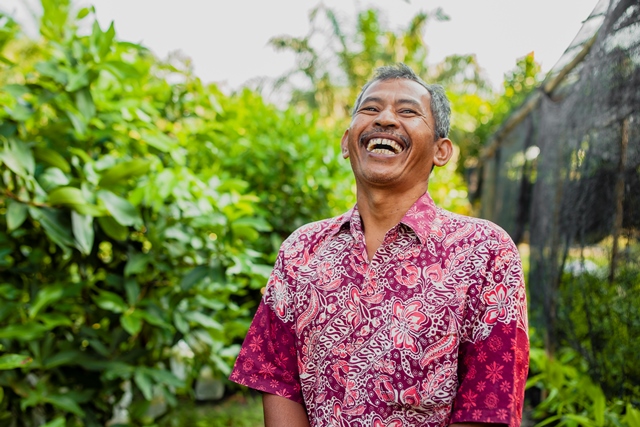To Benefit the Company
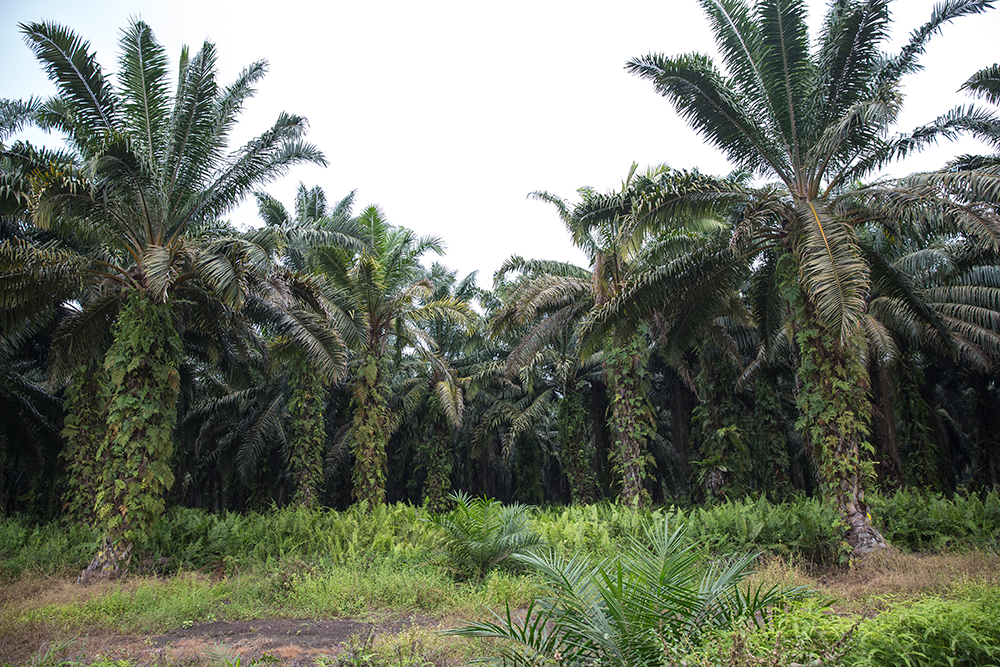
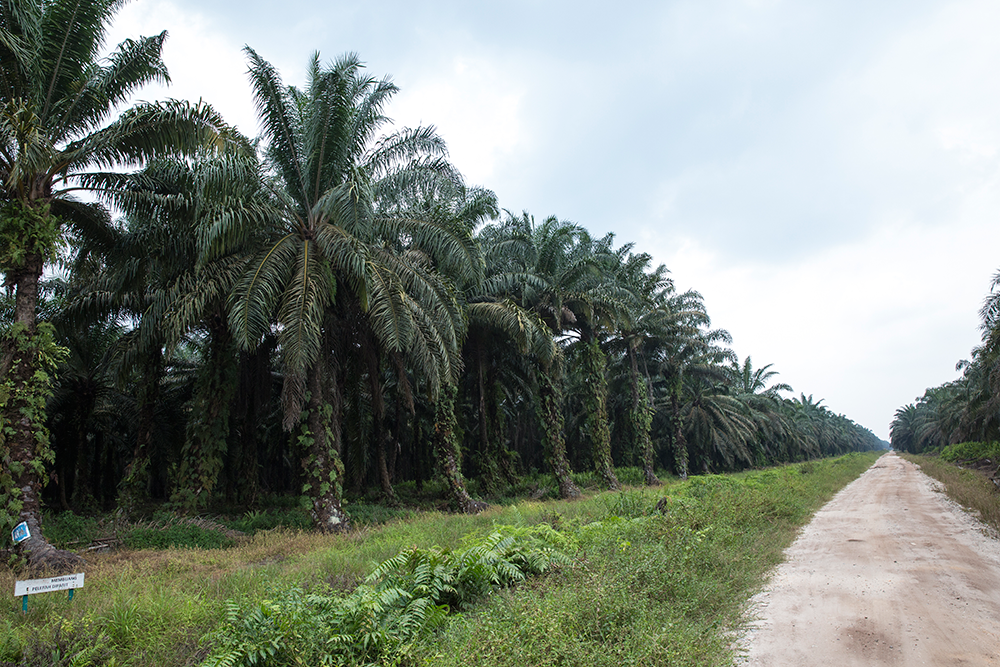
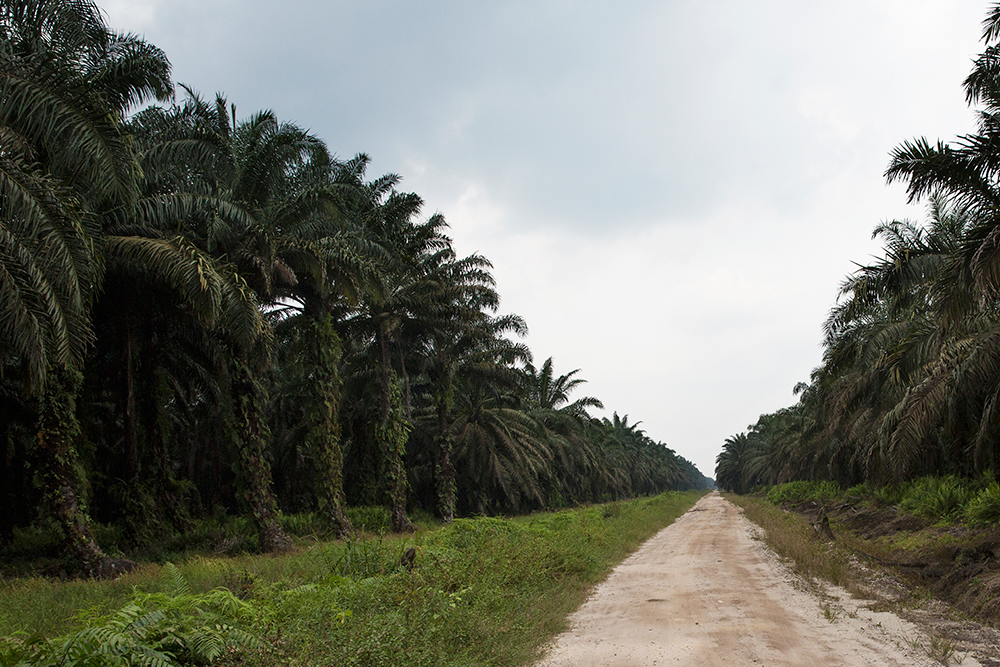
Business Sustainability
Asian Agri owns 30 oil palm plantations covering more than 100,000 hectares in Sumatra, Indonesia. Most of the oil palm trees are now entering the most productive period in 25 years.
For more than 33 years, Asian Agri has developed an integrated strategy aimed at producing and processing oil palm products. This strategy takes advantage of a wide range of natural conditions that makes Indonesia one of the most ideal palm oil producing areas in the world. This tropical plant thrives at about 10 degrees north and south from the equator, where Sumatra is located. The favorable climate conditions between these two latitudes are complemented by fertile soil and an abundant workforce.
Consistency of Supply
Asian Agri’s core value of Continuous Improvement focus is on increasing Oil Extraction Rate (OER). Asian Agri applies Best Practice Block (BPB) as a step towards achieving ≥ 35 ton FFB/ha, with potential CPO gains of ≥ 7.5 tons of CPO/ha per year.
Oil palm has the advantage over other agricultural commodities in terms of optimal yield and efficient land use. Oil palm uses 6% of the world’s land area but is able to produce 7-10 times more yield compared to other commodities. Oil palm can produce 4.17 tons of yield per hectare, far surpassing other plants. Soybean, for example, only yields 0.39 tons per hectare.
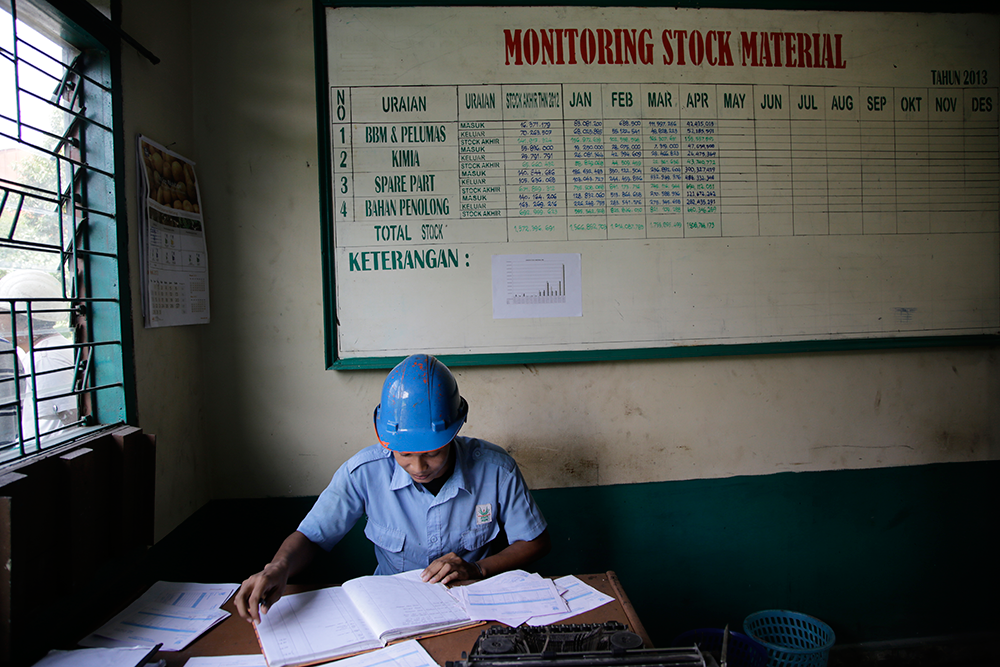
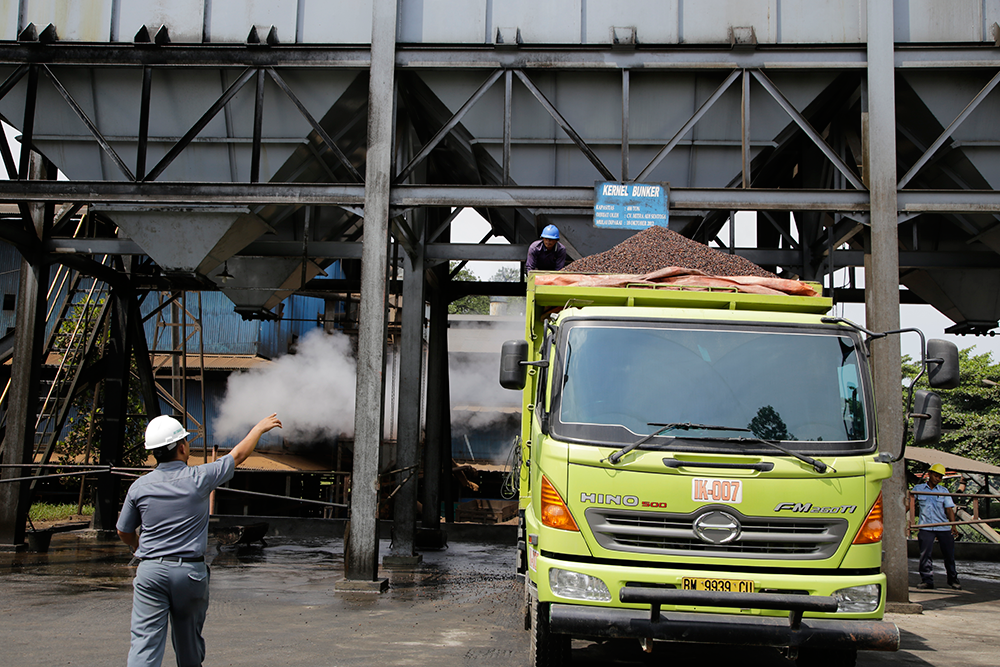
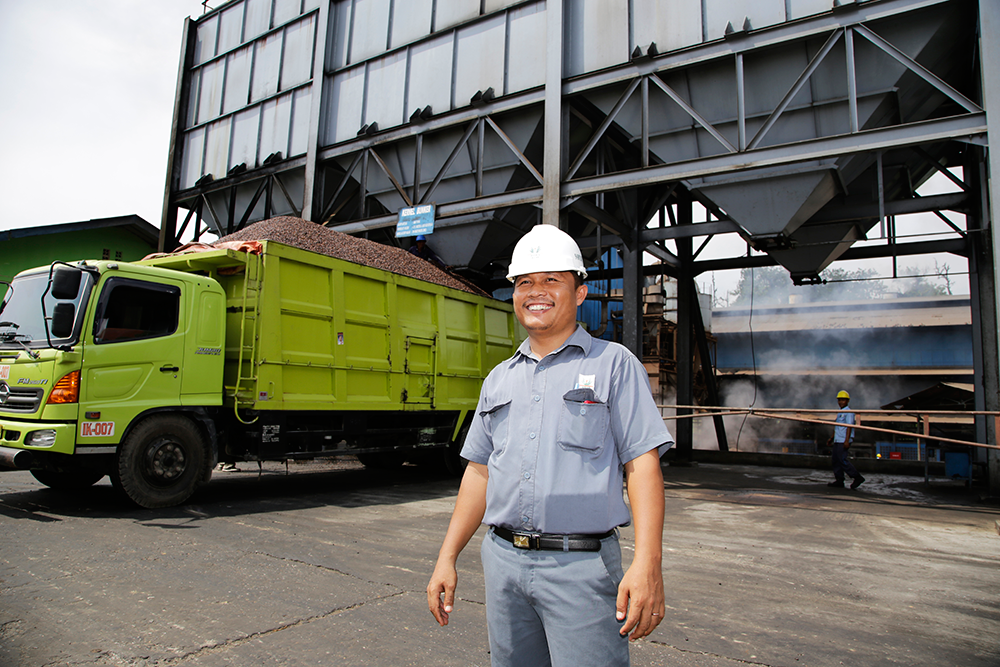
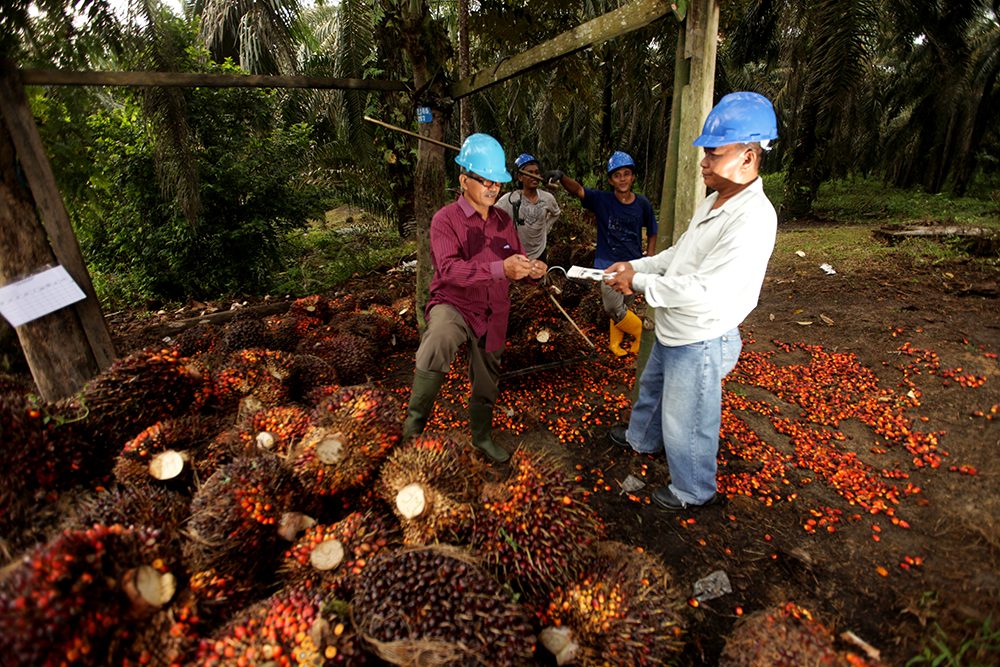
Traceability
Traceability is a process of validation at each level of production in the oil palm industry to ensure that sustainability standards are met. As there are companies that supply from third party suppliers, traceability is important to ensure the palm oil adheres to current sustainability standards.
With tracking, the palm oil supply chain is more transparent. Each point of origin from plantations to consumers must be documented so that the entire supply chain can be traced to identifiable sources.
Traceability also helps to map companies that need to improve their practices to meet environmental standards. With established traceability, palm oil companies will be encouraged to raise the standards of their sustainable practices as well as to improve their levels of accountability. Traceability also contributes positively to local communities. The process does not only take into account the environmental impact of palm oil production, but also its social impact. Traceability reveals not only the origins of palm oil from environmentally friendly sources, but also evidence that the plantation is socially responsible to the local community.
Asian Agri has also been a member of SUSTAIN Palm Oil Alliance since 2018 together with KAO, Neste and Apical.
The alliance aims to improve traceability to palm oil production areas and accelerate the implementation of NDPE policies across supply chains.
For more information on Asian Agri’s traceability initiatives and targets, refer to the Asian Agri Sustainability Policy.
Product Quality
One of Asian Agri’s commitments in protecting the environment is to only accept oil palm Fresh Fruit Bunches (FFB) from partnered independent smallholders and third party suppliers of oil palm fruits that provide legal documentation of the source of their FFBs. This is to ensure that the company’s FFB supply comes from legal sources in order to prevent encroachment of natural forests and protected areas, halt illegal oil palm plantations and build a sustainable supply chain.
Asian Agri is also committed to provide a 4% incentive for smallholders who produce quality palm fruits that meet the international certification standard, the RSPO. As a result, smallholders are increasingly motivated to provide the best FFBs. In 2017, 100% of scheme smallholder plantations in Riau and Jambi provinces have been RSPO certified. All plantations, including those owned by smallholders, have been certified by ISCC (International Sustainability & Carbon Certification).
Visit our Standards and Certification page for more information.
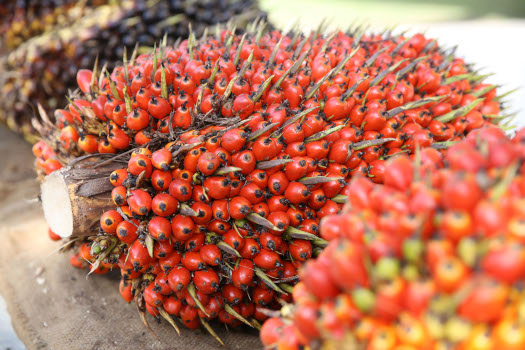
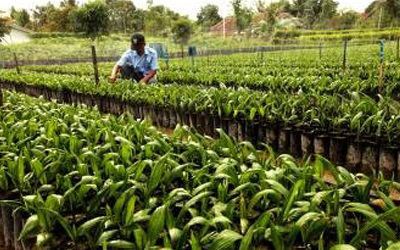
Engagement with Community
Asian Agri provides guidance and assistance to oil palm smallholders, from the phase of nursery, harvest, until the period of replanting. Asian Agri empowers the smallholders in developing smallholder and independent oil palm plantation methods. Asian Agri has also been committed to fostering smallholder groups for decades that benefit the welfare of the smallholders. Today, smallholder groups under the wings of Asian Agri have shown significant progress. For instance, the average income of smallholders exceeds the provincial minimum wage.
Commitment to long-term partnerships between oil palm companies with these smallholders is one of the success indicators of sustainable palm oil business. This provides smallholders with the knowledge of oil palm best management practices.


